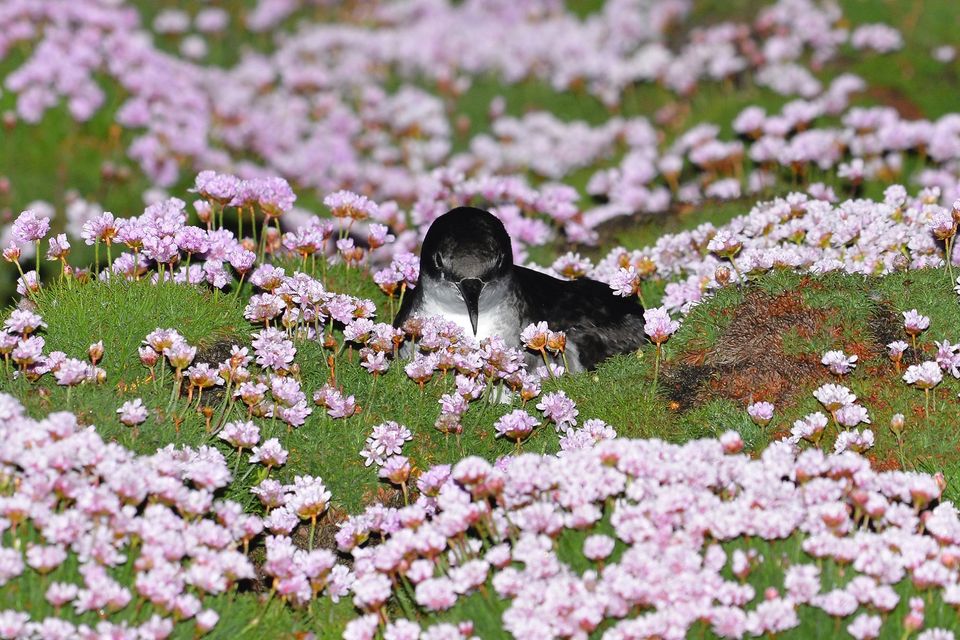
A Manx Shearwater among flowers on Skomer, photograph by Chris Perrins
Patricia Serafini (Laboratório de Biomarcadores de Contaminação Aquática e Imunoquímica, Universidade Federal de Santa Catarina, Florianópolis, Brazil) and colleagues have published in the Marine Pollution Bulletin on organic pollutants and plastic ingestion with Manx Shearwaters Puffinus puffinus.
The paper’s abstract follows:
“Anthropogenic pollution poses a threat to marine conservation by causing chronic toxic effects. Seabirds have contact throughout their lives with pollutants like plastic, metals, polychlorinated biphenyls (PCBs), and organochlorine pesticides such as hexachlorocyclohexanes (HCHs). We assessed 155 Manx shearwaters (Puffinus puffinus) stranded along the Brazilian coast, analyzing associations between organic pollutants, plastic ingestion, biomarkers (transcript levels of aryl hydrocarbon receptor, cytochrome P450-1A-5 [CYP1A5], UDP-glucuronosyl-transferase [UGT1], estrogen receptor alpha-1 [ESR1], and heat shock protein-70 genes) and enzymes activity (ethoxy-resorufin O-deethylase and glutathione S-transferase [GST]). Plastic debris was found in 29 % of the birds. The transcription of UGT1 and CYP1A5 was significantly associated with hexachlorobenzene (HCB) and PCBs levels. ESR1 was associated with HCB and Mirex, and GST was associated with Drins and Mirex. While organic pollutants affected shearwaters more than plastic ingestion, reducing plastic availability remains relevant as xenobiotics are also potentially adsorbed onto plastics.”
Reference:
Patricia P. Serafini, Bárbara P.H. Righetti, Ralph E.T. Vanstreels, Leandro Bugoni, Clei E. Piazza, Daína Lima, Jacó J. Mattos, Cristiane K.M. Kolesnikovas, Alice Pereira, Marcelo Maraschin, Isadora Piccinin, Tim Guilford, Luciana Gallo, Marcela M. Uhart, Rafael A. Lourenço, Afonso C.D. Bainy & Karim H. Lüchmann, 2024. Biochemical and molecular biomarkers and their association with anthropogenic chemicals in wintering Manx shearwaters (Puffinus puffinus). Marine Pollution Bulletin 203. 116398.
29 October 2024

 English
English  Français
Français  Español
Español